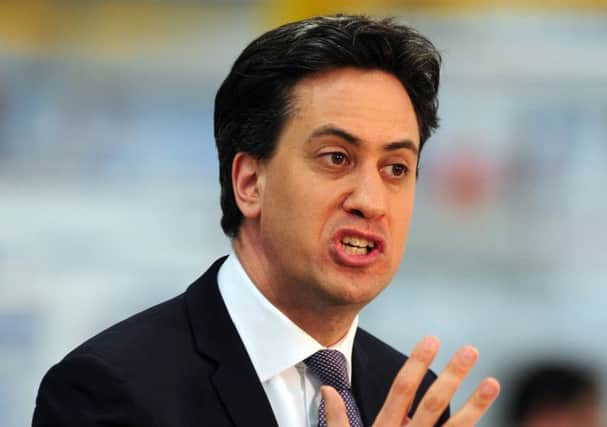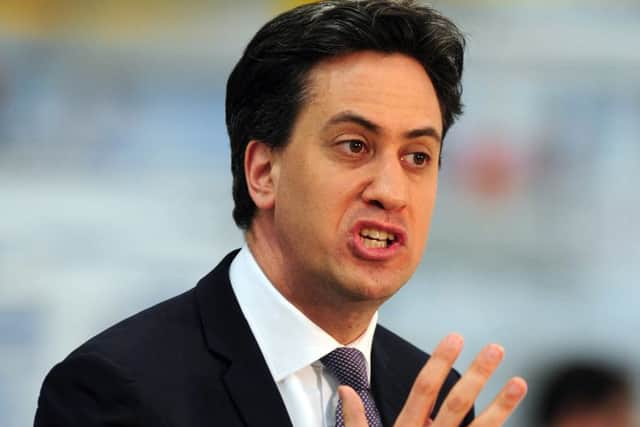Labour will cut tuition fees by a third, pledges Miliband in Leeds


The Labour leader has been reluctant to discuss what would happen in the event of a hung parliament, insisting he is focused on winning a majority.
But announcing his plan to cut tuition fees from £9,000 to £6,000 he was unequivocal about whether the policy would survive talks with potential coalition partners.
Advertisement
Hide AdAdvertisement
Hide AdAsked at the event in Leeds if this was a “cast iron guarantee”, he said: “Yes, yes, yes.”


The promise is designed to contrast Labour with the Liberal Democrats who pledged to phase out tuition fees before the last election but dropped the policy as part of the coalition discussions with the Conservatives.
Labour’s pitch for students and disillusioned Lib Dem voters was underlined by Mr Miliband in his speech at Leeds College of Music today.
“Nick Clegg made his promise on tuition fees. He broke his promise on tuition fees. It has left a whole generation doubting politics - doubting anyone can be believed or trusted.
Advertisement
Hide AdAdvertisement
Hide Ad“Let me say to Britain’s young people: I made you a promise on tuition fees. I will keep my promise.
“I don’t simply want to build your faith in Labour. I want to restore your faith that change can be believed.”
Labour said it would pay for the cut with a reduction in pension tax relief for higher earners and reductions in the limits people can put into pensions and save tax-free.
The interest rate for student loans on higher earning graduates will also increase.
Advertisement
Hide AdAdvertisement
Hide AdMr Miliband said he and Shadow Chancellor Ed Balls continued to look at the merits of replacing the system with a graduate tax, an idea he supported when he ran for the Labour leadership, but that would not be in the party’s manifesto for this election.
The party estimates its reforms will reduce the average graduate debt by £9,000 and reduce the debt to the taxpayer from unpaid loans by £40 billion by 2030.
Labour’s opponents said the policy would only help the wealthiest graduates who can afford to pay off their debt quickly not lower paid students who continue to pay for up to 30 years before the debt is written off.
Business Secretary Vince Cable said: “A cut to £6,000 would wreck the financial sustainability of universities, reduce the support for disadvantaged students and benefit only the richest.”
Advertisement
Hide AdAdvertisement
Hide AdUniversity vice-chancellors had previously expressed concern that a cut in fees could damage university finances but Labour’s promise to fill the gap appeared to have muted much of the criticism.
Professor Sir Keith Burnett, vice-chancellor of Sheffield University said that if the cut was fully funded, it could be positive news.
“It would be really good for students and their families and their debt, but students also have concerns about how the gap would be plugged.”
University students know that a £3,000 reduction in their fees means a 30 per cent cut in teaching funding, he said.
Advertisement
Hide AdAdvertisement
Hide AdBut there was concern that Labour’s chosen method of funding the policy could discourage people from saving for their future.
Paul Green, of Saga, said, “Labour’s pledge to cut tuition fees will be welcomed by students, universities and families alike providing they are properly costed and funded. However, paying for it by removing pensions tax relief is like playing Russian roulette with people’s futures.
“Of course education is crucial for the future of the individuals and the economy, but so too is ensuring we foster a savings culture where people ensure they put enough by for their futures - whether that be for pensions or care.”